State of Virginia nullifies National Defense Authorization Act in 96-4 vote
Corruption, World news Friday, April 13th, 2012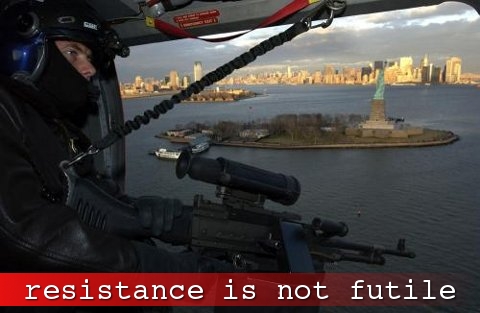
NDAA assault against liberty and justice for all repealed
The Virginia House of Delegates has voted in favor of House Bill 1160 (HB1160), legislation that codifies in Virginia law noncompliance with the “kidnapping provisions” of section 1021 and 1022 of the National Defense Authorization Act of 2012 (NDAA). The final vote, held on February 14, was 96-4.
The bill was sponsored by Delegate Bob Marshall and was introduced on January 16th of this year. Virginia Governor Bob McDonnell, the 71st Governor of Virginia since January 16, 2010 is on record as opposing the legislation. A former lieutenant colonel in the United States Army, McDonnell served in the Virginia House of Delegates from 1993 to 2006 and served as Attorney General of Virginia from 2006 to 2009. He currently serves as chairman of the Republican Governors Association.
HB 1160 reads as follows: “A BILL to prevent any agency, political subdivision, employee, or member of the military of Virginia from assisting an agency of the armed forces of the United States in the conduct of the investigation, prosecution, or detention of a citizen in violation of the United States Constitution, the Constitution of Virginia, or any Virginia law or regulation.”
Passing the legislation demonstrates the power of local grassroots activism. A number of groups opposed to the federal NDAA bill petitioned the government in Virginia and motivated a Sub-Committee #2 Civil vote followed by a vote of 16-0 by the Courts of Justice Committee which led to the passage of Bob Marshall’s final bill earlier this week.
“Under the recently passed 2012 federal Defense Authorization Act American citizens may be indefinitely detained, incarcerated, not presented with charges and denied counsel based on an accusation by federal agents of collaboration with or support of terrorists,” Marshall told theTenth Amendment Center. “While Virginia cannot directly undo this purported law which undermines the Sixth Amendment, I introduced HB 1160 which will prevent the use of any Virginia agency or member of the Virginia National Guard or Virginia Defense Force to assist in any way to unlawfully detain a citizen of Virginia on behalf of the United States Government in violation of the Constitution of Virginia.”
The legislation “is inimical to the liberty, security and well-being of the people,” the Tenth Amendment Center states, “and was adopted by the United States Congress in violation of the limits of federal power in United States Constitution.”
Short URL: https://presscore.ca/news/?p=5568

 The Halifax International Security Forum was founded in 2009 as a propaganda program within the German Marshall Fund (founded June 5, 1972 by West German Chancellor Willy Brandt) by the Crown in Canada using Crown Corp ACOA & DND funds. The Halifax International Security Forum is a front that is used to recruit top US, UK and Canadian gov and military officials as double agents for Canada's WWI, WWII enemy and wage new Vatican Germany Cold War.
High Treason: s.46 (1) Every one commits high treason who, in Canada (c) assists an enemy at war with Canada, ..., whether or not a state of war exists". Every one who, in Canada assists Canada's enemies wage "piecemeal WWIII" Cold War by organizing, funding and participating in the Germany government politically and militarily benefitting / lead Halifax International Security Forum is committing high treason.
The Halifax International Security Forum was founded in 2009 as a propaganda program within the German Marshall Fund (founded June 5, 1972 by West German Chancellor Willy Brandt) by the Crown in Canada using Crown Corp ACOA & DND funds. The Halifax International Security Forum is a front that is used to recruit top US, UK and Canadian gov and military officials as double agents for Canada's WWI, WWII enemy and wage new Vatican Germany Cold War.
High Treason: s.46 (1) Every one commits high treason who, in Canada (c) assists an enemy at war with Canada, ..., whether or not a state of war exists". Every one who, in Canada assists Canada's enemies wage "piecemeal WWIII" Cold War by organizing, funding and participating in the Germany government politically and militarily benefitting / lead Halifax International Security Forum is committing high treason.
 Please take a moment to sign a petition to
Please take a moment to sign a petition to 











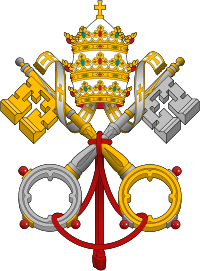























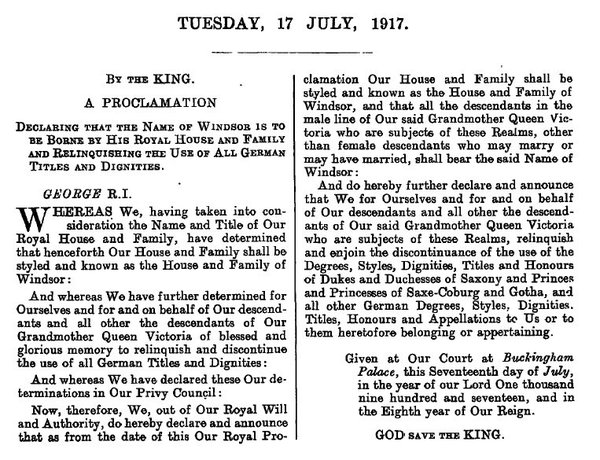





 1917 Code of Canon Law, Canon 185 invalidates (voids) all papacies since October 26, 1958 due to the fact Cardinal Giuseppe Siri was elected Pope on the Third ballot on Oct 26 1958 but the new Pope Gregory XVII was illegally prevented from assuming the office. A Pope was elected on October 26, 1958. Thousands of people witnessed a new Pope being elected by seeing white smoke and millions were informed by Vatican radio broadcasts beginning at 6:00 PM Rome time on October 26, 1958. The papacy of Francis, Benedict, John Paul II, John Paul I, Paul VI, John XXIII and any and all of their respective doctrines, bulls, letter patents and the Second Vatican Council are all invalidated (having no force, binding power, or validity) by Canon 185 because the 1958 conclave of cardinals elected Cardinal Giuseppe Siri Pope on Oct 26 1958. Cardinal Giuseppe Siri accepted the papacy by taking the name Pope Gregory XVII but was illegally prevented from assuming his elected office.. According to Canon 185 Cardinal Angelo Giuseppe Roncalli illegally assumed the papacy 2 days later by fraud and grave fear, unjustly inflicted against Cardinal Giuseppe Siri who was lawfully elected Pope Gregory XVII. Because no Pope has been lawfully elected since October 26, 1958 the Holy See (la Santa Sede/Seat) remains vacant.
1917 Code of Canon Law, Canon 185 invalidates (voids) all papacies since October 26, 1958 due to the fact Cardinal Giuseppe Siri was elected Pope on the Third ballot on Oct 26 1958 but the new Pope Gregory XVII was illegally prevented from assuming the office. A Pope was elected on October 26, 1958. Thousands of people witnessed a new Pope being elected by seeing white smoke and millions were informed by Vatican radio broadcasts beginning at 6:00 PM Rome time on October 26, 1958. The papacy of Francis, Benedict, John Paul II, John Paul I, Paul VI, John XXIII and any and all of their respective doctrines, bulls, letter patents and the Second Vatican Council are all invalidated (having no force, binding power, or validity) by Canon 185 because the 1958 conclave of cardinals elected Cardinal Giuseppe Siri Pope on Oct 26 1958. Cardinal Giuseppe Siri accepted the papacy by taking the name Pope Gregory XVII but was illegally prevented from assuming his elected office.. According to Canon 185 Cardinal Angelo Giuseppe Roncalli illegally assumed the papacy 2 days later by fraud and grave fear, unjustly inflicted against Cardinal Giuseppe Siri who was lawfully elected Pope Gregory XVII. Because no Pope has been lawfully elected since October 26, 1958 the Holy See (la Santa Sede/Seat) remains vacant.
 Hold the Crown (alias for temporal authority of the reigning Pope), the Crown appointed Governor General of Canada David Lloyd Johnston, the Crown's Prime Minister (servant) Stephen Joseph Harper, the Crown's Minister of Justice and Attorney General Peter Gordon MacKay and the Crown's traitorous military RCMP force, accountable for their crimes of treason and high treason against Canada and acts preparatory thereto. The indictment charges that they, on and thereafter the 22nd day of October in the year 2014, at Parliament in the City of Ottawa in the Region of Ontario did, use force and violence, via the staged false flag Exercise Determined Dragon 14, for the purpose of overthrowing and besieging the government of Canada contrary to Section 46 of the Criminal Code. In a society governed by the rule of law, the government and its officials and agents are subject to and held accountable under the law. Sign the online
Hold the Crown (alias for temporal authority of the reigning Pope), the Crown appointed Governor General of Canada David Lloyd Johnston, the Crown's Prime Minister (servant) Stephen Joseph Harper, the Crown's Minister of Justice and Attorney General Peter Gordon MacKay and the Crown's traitorous military RCMP force, accountable for their crimes of treason and high treason against Canada and acts preparatory thereto. The indictment charges that they, on and thereafter the 22nd day of October in the year 2014, at Parliament in the City of Ottawa in the Region of Ontario did, use force and violence, via the staged false flag Exercise Determined Dragon 14, for the purpose of overthrowing and besieging the government of Canada contrary to Section 46 of the Criminal Code. In a society governed by the rule of law, the government and its officials and agents are subject to and held accountable under the law. Sign the online  Two of the most obvious signs of a dictatorship in Canada is traitorous Stephen Harper flying around in a "military aircraft" and using Canadian Special Forces "military" personnel from JTF2 and personnel from the Crown's traitorous martial law "military" RCMP force as his personal bodyguards.
Two of the most obvious signs of a dictatorship in Canada is traitorous Stephen Harper flying around in a "military aircraft" and using Canadian Special Forces "military" personnel from JTF2 and personnel from the Crown's traitorous martial law "military" RCMP force as his personal bodyguards.

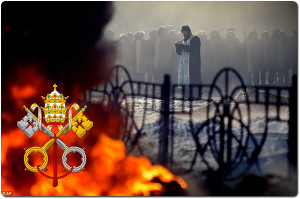


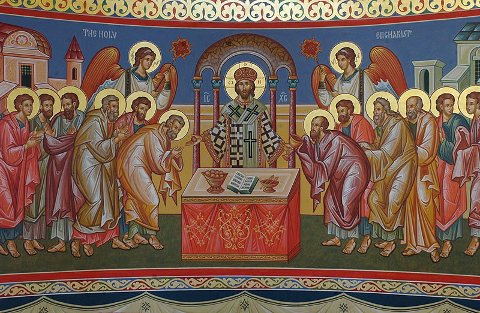

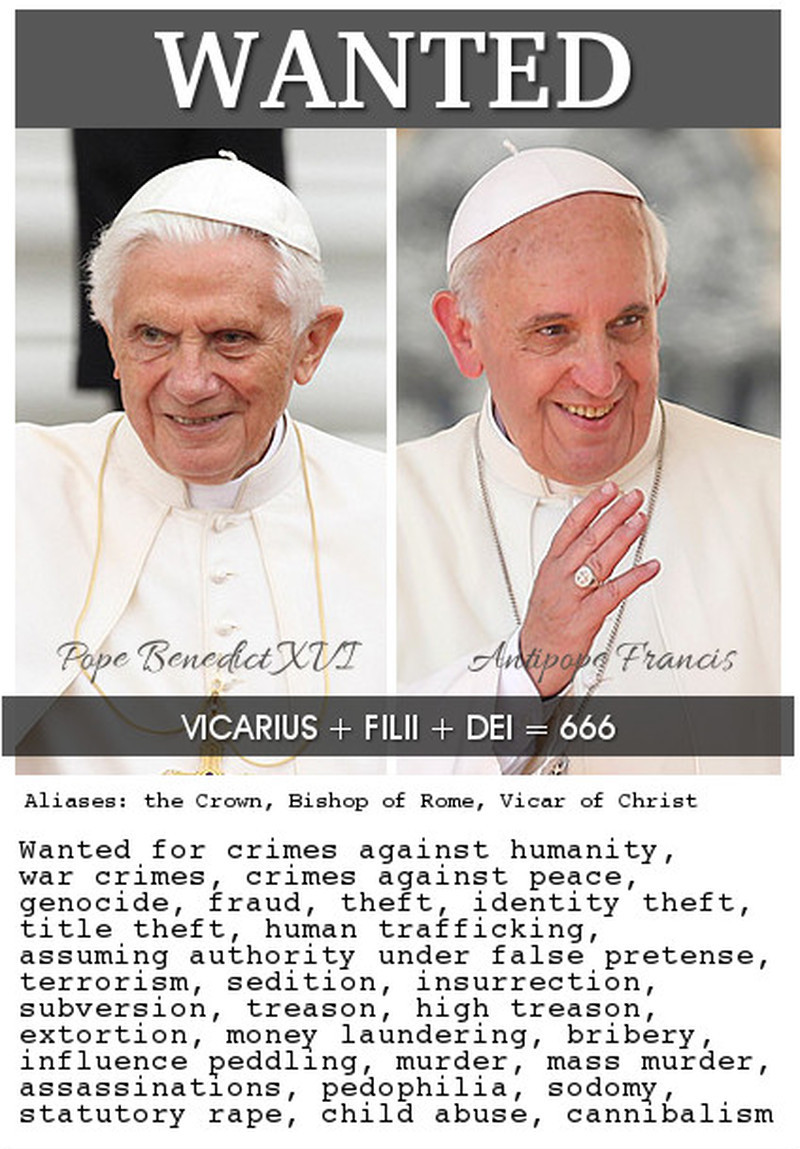






























Americans fought and died in 2 major wars since 9/11. What was the names of those wars? Operation Enduring Freedom” (OEF) was the official name used by the U.S. government for the War in Afghanistan. The 2003 invasion of Iraq was the start of the conflict known as Operation Iraqi Freedom. Today America’s freedom is at stake. Today, the US government is the enemy.
“Now let me be clear — I suffer no illusions about Saddam Hussein. He is a brutal man. A ruthless man. A man who butchers his own people to secure his own power. He has repeatedly defied UN resolutions, thwarted UN inspection teams, developed chemical and biological weapons, and coveted nuclear capacity. He’s a bad guy. The world, and the Iraqi people, would be better off without him.” State Senator Barack Obama (Democrat, Illinois) Speech at Federal Plaza, Chicago, Illinois October 2, 2002
“The hard fact is that so long as Saddam remains in power, he threatens the well-being of his people, the peace of his region, the security of the world.
The best way to end that threat once and for all is with a new Iraqi government — a government ready to live in peace with its neighbors, a government that respects the rights of its people.” President Clinton Oval Office Address to the American People December 16, 1998
Replace Saddam with Obama and Iraqi with US. “The hard fact is that so long as Obama remains in power, he threatens the well-being of his people, the peace of his region, the security of the world.
“The best way to end that threat once and for all is with a new US government — a government ready to live in peace with its neighbors, a government that respects the rights of its people.”
The State of Virginia has always supported the rights of the American people. It makes perfect sense that they would be the first to act to annul the National Defense Authorization Act on the grounds that it violates the United States Constitution and abuses the rights of the American people.
The Virginia Declaration of Rights strongly influenced Thomas Jefferson in writing the first part of the Declaration of Independence. It later provided the foundation for the Bill of Rights. – http://www.archives.gov/exhibits/charters/declaration.html
The Virginia Declaration of Rights
Virginia’s Declaration of Rights was widely copied by the other colonies and became the basis of the Bill of Rights. Written by George Mason, it was adopted by the Virginia Constitutional Convention on June 12, 1776.
A DECLARATION OF RIGHTS made by the representatives of the good people of Virginia, assembled in full and free convention which rights do pertain to them and their posterity, as the basis and foundation of government .
Section 1. That all men are by nature equally free and independent and have certain inherent rights, of which, when they enter into a state of society, they cannot, by any compact, deprive or divest their posterity; namely, the enjoyment of life and liberty, with the means of acquiring and possessing property, and pursuing and obtaining happiness and safety.
Section 2. That all power is vested in, and consequently derived from, the people; that magistrates are their trustees and servants and at all times amenable to them.
Section 3. That government is, or ought to be, instituted for the common benefit, protection, and security of the people, nation, or community; of all the various modes and forms of government, that is best which is capable of producing the greatest degree of happiness and safety and is most effectually secured against the danger of maladministration. And that, when any government shall be found inadequate or contrary to these purposes, a majority of the community has an indubitable, inalienable, and indefeasible right to reform, alter, or abolish it, in such manner as shall be judged most conducive to the public weal.
Section 4. That no man, or set of men, is entitled to exclusive or separate emoluments or privileges from the community, but in consideration of public services; which, nor being descendible, neither ought the offices of magistrate, legislator, or judge to be hereditary.
Section 5. That the legislative and executive powers of the state should be separate and distinct from the judiciary; and that the members of the two first may be restrained from oppression, by feeling and participating the burdens of the people, they should, at fixed periods, be reduced to a private station, return into that body from which they were originally taken, and the vacancies be supplied by frequent, certain, and regular elections, in which all, or any part, of the former members, to be again eligible, or ineligible, as the laws shall direct.
Section 6. That elections of members to serve as representatives of the people, in assembly ought to be free; and that all men, having sufficient evidence of permanent common interest with, and attachment to, the community, have the right of suffrage and cannot be taxed or deprived of their property for public uses without their own consent or that of their representatives so elected, nor bound by any law to which they have not, in like manner, assembled for the public good.
Section 7. That all power of suspending laws, or the execution of laws, by any authority, without consent of the representatives of the people, is injurious to their rights and ought not to be exercised.
Section 8. That in all capital or criminal prosecutions a man has a right to demand the cause and nature of his accusation, to be confronted with the accusers and witnesses, to call for evidence in his favor, and to a speedy trial by an impartial jury of twelve men of his vicinage, without whose unanimous consent he cannot be found guilty; nor can he be compelled to give evidence against himself; that no man be deprived of his liberty except by the law of the land or the judgment of his peers.
Section 9. That excessive bail ought not to be required, nor excessive fines imposed, nor cruel and unusual punishments inflicted.
Section 10. That general warrants, whereby an officer or messenger may be commanded to search suspected places without evidence of a fact committed, or to seize any person or persons not named, or whose offense is not particularly described and supported by evidence, are grievous and oppressive and ought not to be granted.
Section 11. That in controversies respecting property, and in suits between man and man, the ancient trial by jury is preferable to any other and ought to be held sacred.
Section 12. That the freedom of the press is one of the great bulwarks of liberty, and can never be restrained but by despotic governments.
Section 13. That a well-regulated militia, composed of the body of the people, trained to arms, is the proper, natural, and safe defense of a free state; that standing armies, in time of peace, should be avoided as dangerous to liberty; and that in all cases the military should be under strict subordination to, and governed by, the civil power.
Section 14. That the people have a right to uniform government; and, therefore, that no government separate from or independent of the government of Virginia ought to be erected or established within the limits thereof.
Section 15. That no free government, or the blessings of liberty, can be preserved to any people but by a firm adherence to justice, moderation, temperance, frugality, and virtue and by frequent recurrence to fundamental principles.
Section 16. That religion, or the duty which we owe to our Creator, and the manner of discharging it, can be directed only by reason and conviction, not by force or violence; and therefore all men are equally entitled to the free exercise of religion, according to the dictates of conscience; and that it is the mutual duty of all to practise Christian forbearance, love, and charity toward each other.
IN CONGRESS, JULY 4, 1776
The unanimous Declaration of the thirteen united States of America
“We hold these truths to be self-evident, that all men are created equal, that they are endowed by their Creator with certain unalienable Rights, that among these are Life, Liberty and the pursuit of Happiness. — That to secure these rights, Governments are instituted among Men, deriving their just powers from the consent of the governed, — That whenever any Form of Government becomes destructive of these ends, it is the Right of the People to alter or to abolish it, and to institute new Government, laying its foundation on such principles and organizing its powers in such form, as to them shall seem most likely to effect their Safety and Happiness. Prudence, indeed, will dictate that Governments long established should not be changed for light and transient causes; and accordingly all experience hath shewn that mankind are more disposed to suffer, while evils are sufferable than to right themselves by abolishing the forms to which they are accustomed. But when a long train of abuses and usurpations, pursuing invariably the same Object evinces a design to reduce them under absolute Despotism, it is their right, it is their duty, to throw off such Government, and to provide new Guards for their future security.“
Every American swears an oath of allegiance to their flag and to the republic of the United States of America. That oath of allegiance immortalizes their right to liberty and justice for all.
According to the United States Flag Code, the Pledge of Allegiance reads:
“I pledge allegiance to the flag of the United States of America, and to the republic for which it stands, one nation under God, indivisible, with liberty and justice for all.”
The United States Constitution guarantees the inalienable rights of the American people. The Fifth Amendment to the United States Constitution, which is part of the Bill of Rights, protects against abuse of government authority in a legal procedure.
“No person shall be held to answer for a capital, or otherwise infamous crime, unless on a presentment or indictment of a Grand Jury, except in cases arising in the land or naval forces, or in the Militia, when in actual service in time of War or public danger; nor shall any person be subject for the same offense to be twice put in jeopardy of life or limb; nor shall be compelled in any criminal case to be a witness against himself, nor be deprived of life, liberty, or property, without due process of law; nor shall private property be taken for public use, without just compensation.”
No person, no Congress, no law, no president can take away these rights.
“If we make peaceful revolution impossible, we make violent revolution inevitable.” – John F. Kennedy
“Arbitrary power is most easily established on the ruins of liberty abused to licentiousness.” – George Washington